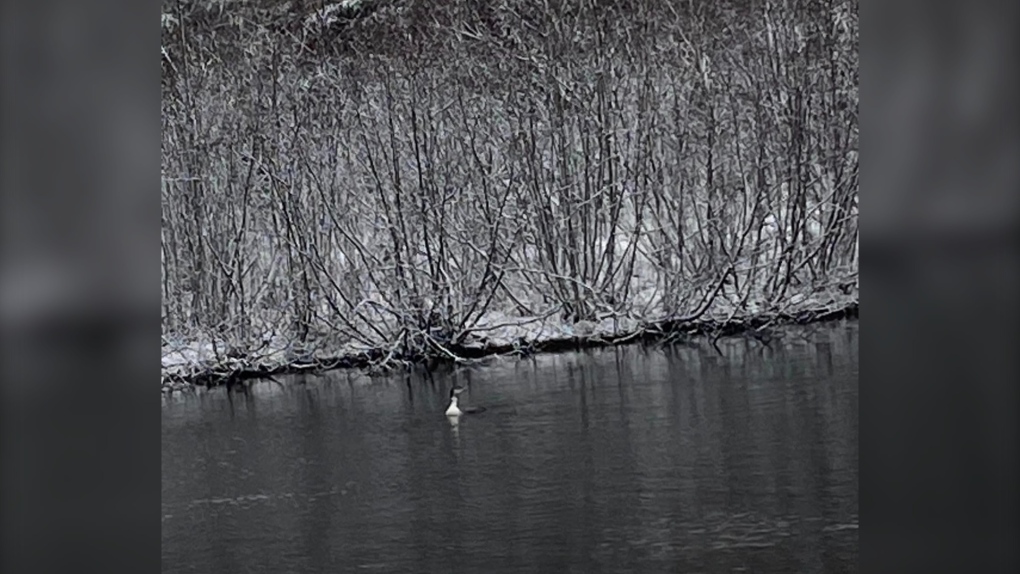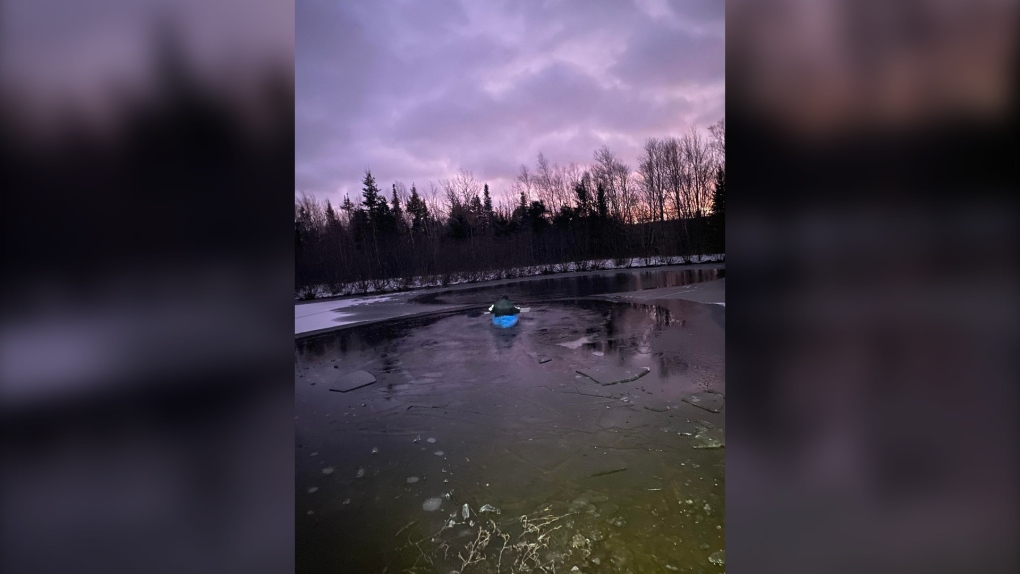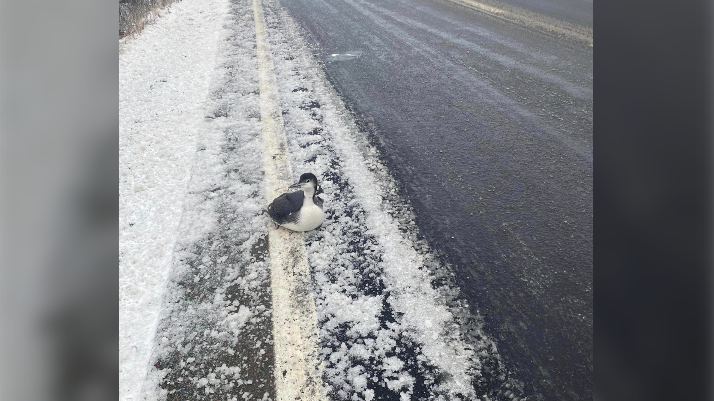N.S. woman rescues loon stuck on side of highway
A Nova Scotia woman wants others to know if you see a loon on the side of the highway, they are likely stuck and need help.
Heather Allen told CTV News in a message on social media, she was on her way to a funeral when she saw a loon – the official bird of Ontario -- on the shoulder of the Cobequid Pass in Cumberland County earlier this month.
Being an animal lover, she said she pulled over and called her husband, Klaine Johnson, to help rescue the protected water bird.
"We called the department of natural resources. They said this happens several times a year - loons think the road is water because of ice/snow and land on it then are stranded because they can’t take off from land or walk on land," Allen said.
"Natural resources had a bird rescue contact us and tell us to put him in a body of water if no apparent injury."
GETTING STUCK
Because of the placement of a loon's feet, which are far back on their bodies to help them dive, Wildlife In Ontario said, it makes it hard for the bird to walk on land.
"If they become stuck on land, they will need rescuing as they cannot walk long or even short distances," the website said.
"During migration, loons may mistake wet highways and parking lots for rivers and lakes."
THE RESCUE
Johnson wrapped the loon in a sheet and as the couple was walking back to the truck, they saw another loon behind the guardrail that hadn't made it, Allen said.
The loon was brought to a large pond on their property, where it has stayed.
 Loon in Heather Allen's pond after rescue from the side of a Nova Scotia highway. (Supplied)
Loon in Heather Allen's pond after rescue from the side of a Nova Scotia highway. (Supplied)
"He takes off, flies a circle, then keeps coming back to our pond," she said.
As winter sets in and water starts to freeze, Johnson goes out in his kayak and breaks up the ice so the loon can have the full pond to use, Allen added.
 Klaine Johnson in a kayak breaking ice on his pond for the rescued loon. (Heather Allen)
Klaine Johnson in a kayak breaking ice on his pond for the rescued loon. (Heather Allen)
Anyone who comes across a loon on a road should take caution, Sudbury scientist Amy Henson told CTV News in an email.
"One must be very careful when picking up a loon, however, because their beaks are very, very sharp," said Henson, a senior manager at Science North in Sudbury.
"The bird should be taken immediately to a bird rehabilitator or wildlife rehabilitator."
CTVNews.ca Top Stories

Driver, 18, gets $3,000 ticket, 32 demerit points after speeding on Laval boulevard
A young driver received a hefty fine from Laval police after they say he was driving nearly 100 km/h over the posted speed limit.
Trump confronts repeated boos during raucous Libertarian convention speech
Donald Trump was booed repeatedly while addressing Saturday night’s Libertarian Party National Convention.
This type of screen time has the worst effect on kids: experts
According to some experts, there is one type of screen time that is continuously excessive, and it's having a severe effect on our children.
Custom baseball card released of Blue Jays fan struck in the face with foul ball
Liz McGuire, the Blue Jays fan who was struck in the face with a 110 m.p.h. foul ball last week, has been pictured on a custom baseball trading card applauding her fandom to the game.
As Canada warms, infectious disease risks spread north
Cases of Lyme disease have now increased more than 1,000 per cent in a decade as the warming climate pushes the boundaries of a range of pathogens and risk factors northward.
Blaine Higgs 'furious' over sexual education presentation
New Brunswick Premier Blaine Higgs has shared his anger on social media over a presentation in at least four high schools.
Grayson Murray, two-time PGA Tour winner, dead at 30
Two-time PGA Tour winner Grayson Murray died Saturday morning at age 30, one day after he withdrew from the Charles Schwab Cup Challenge at Colonial.
Why did the French Open cancel a farewell ceremony for Rafael Nadal? And why is he unseeded?
The French tennis federation put off holding a ceremony to celebrate Rafael Nadal at Roland Garros this year, because he has said this might not necessarily be his final appearance at the tournament he has won a record 14 times.
Search underway for missing swimmer on Lake St. Clair
A search is currently underway for a Michigan man who police said jumped into the waters of Lake St. Clair on Saturday afternoon and did not resurface.



































